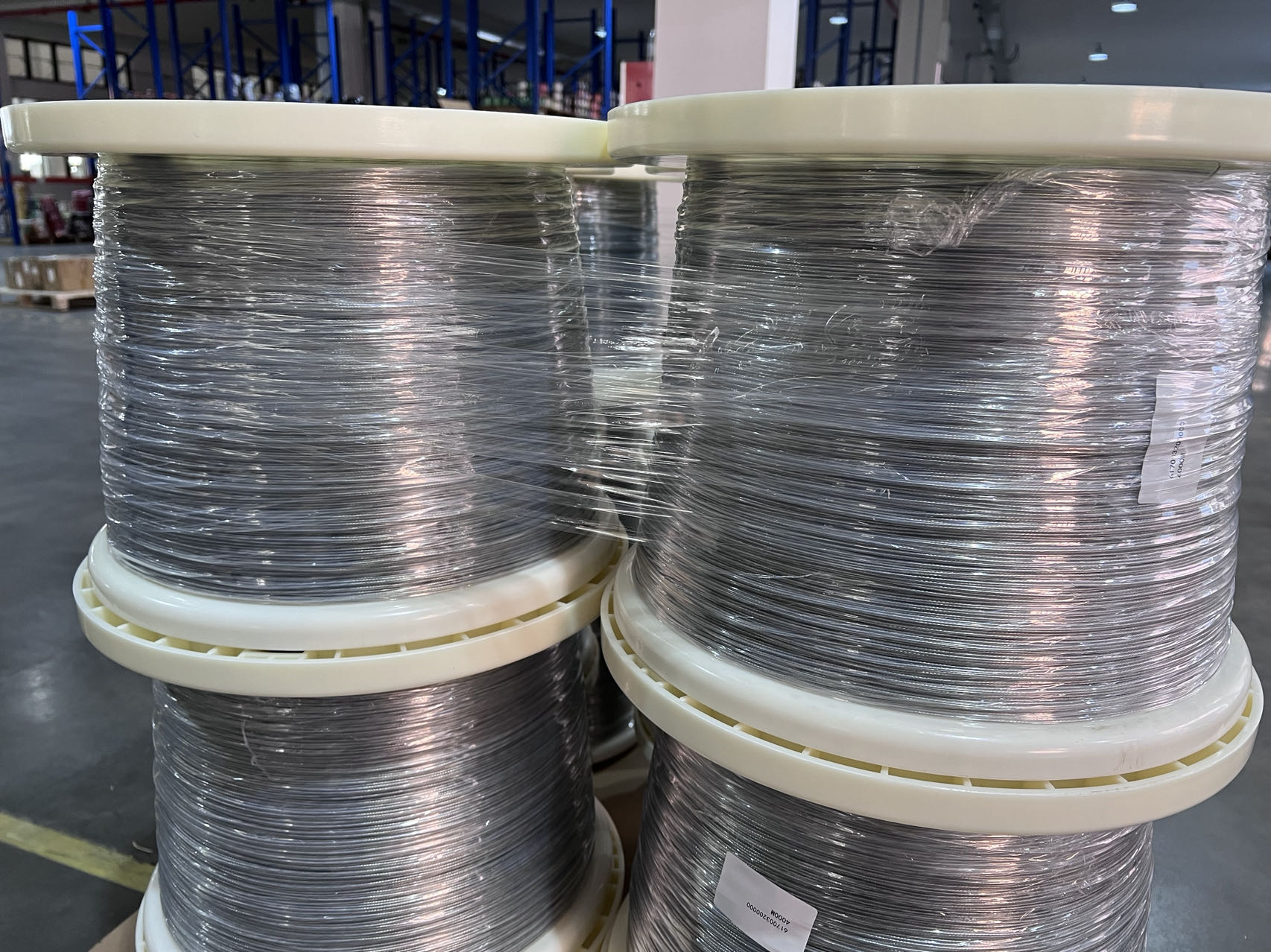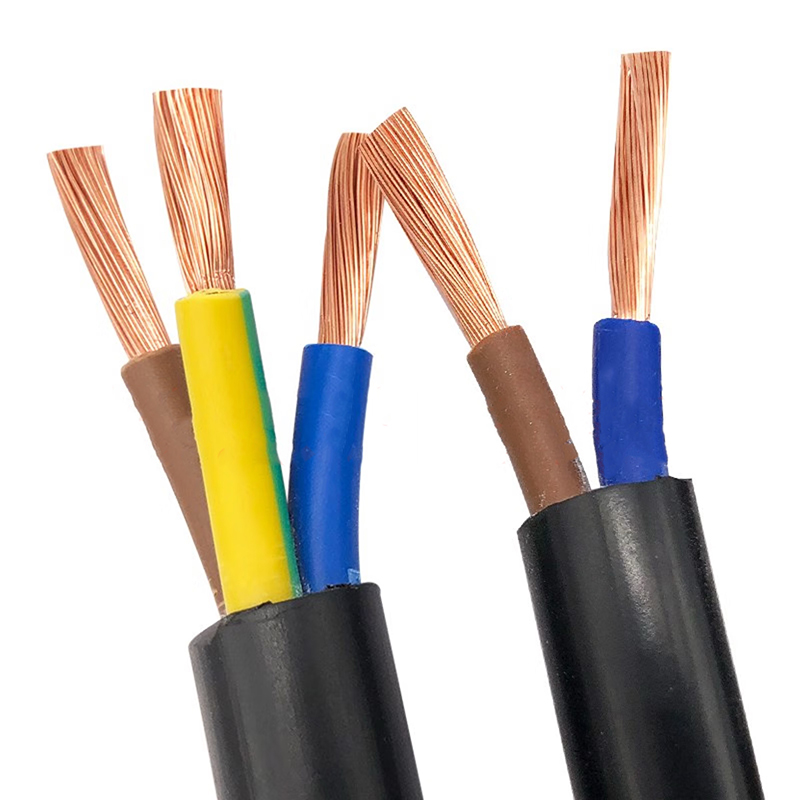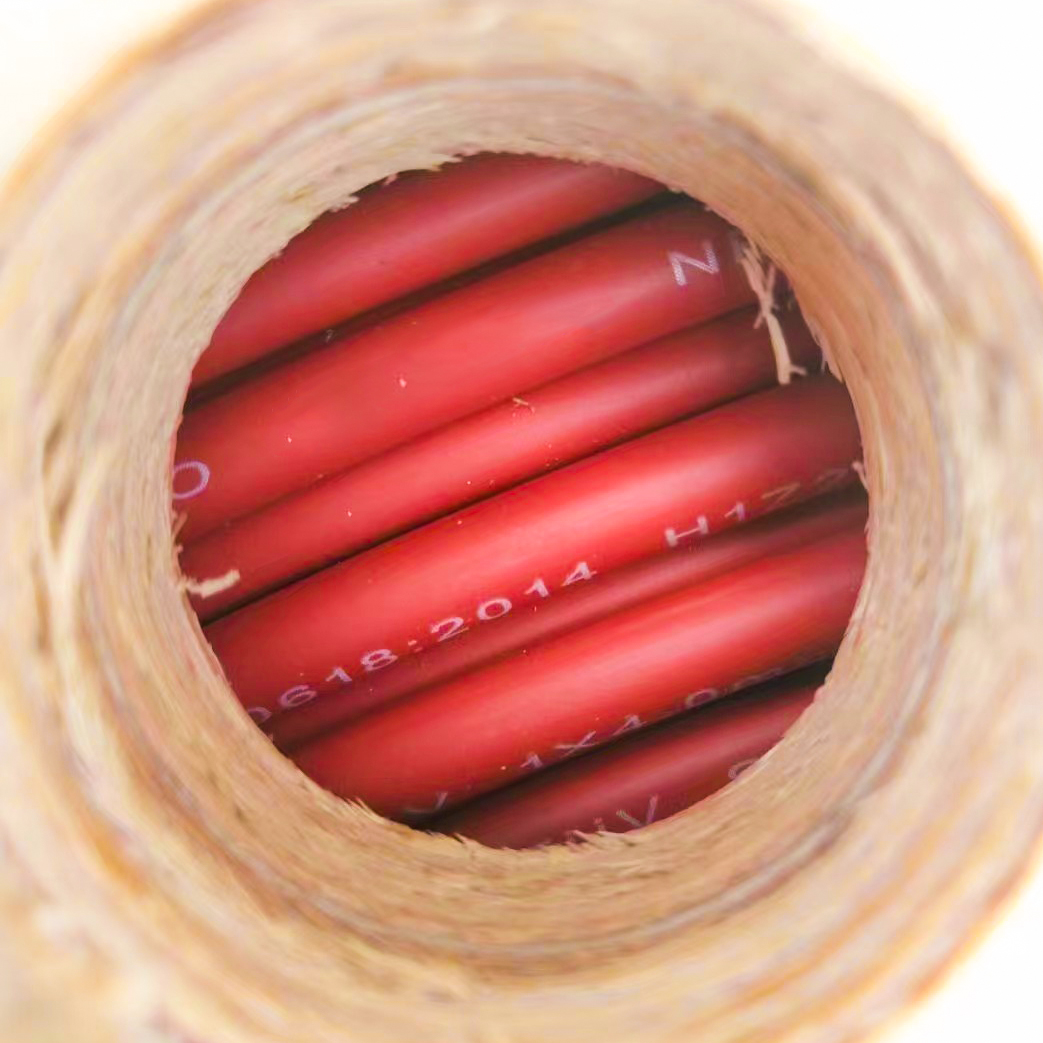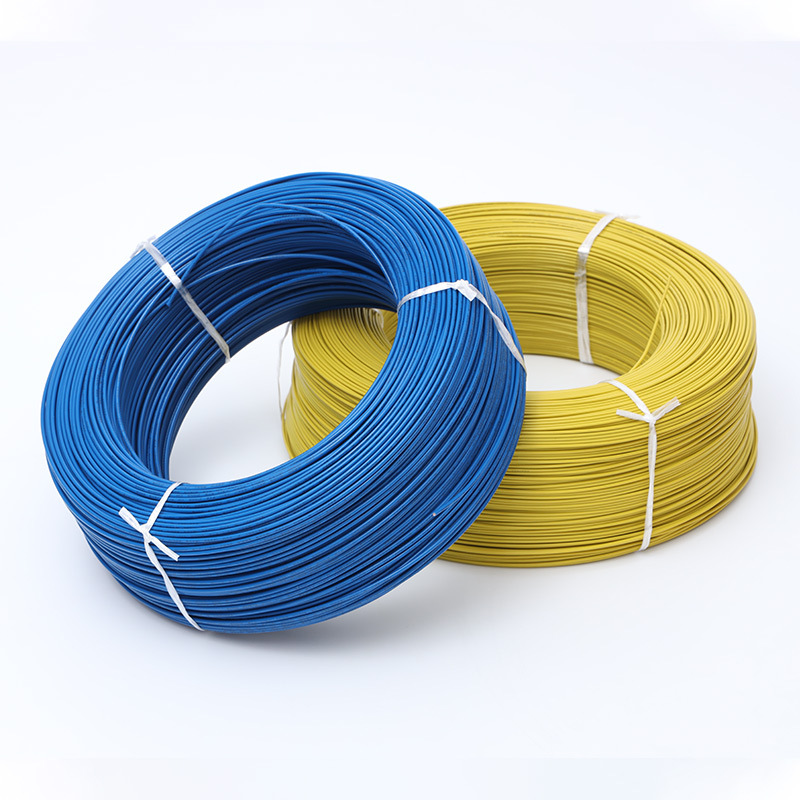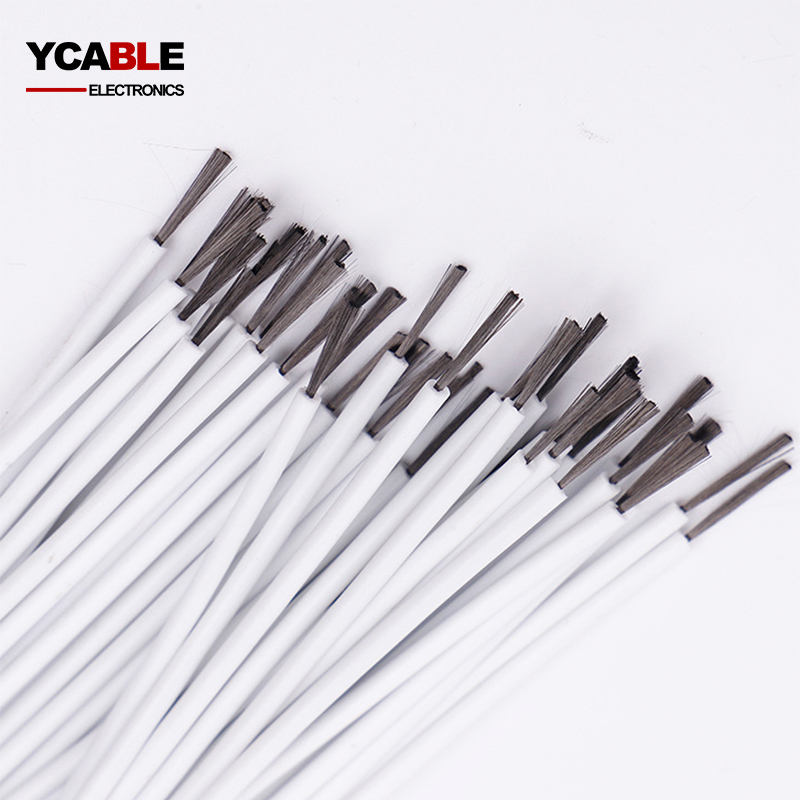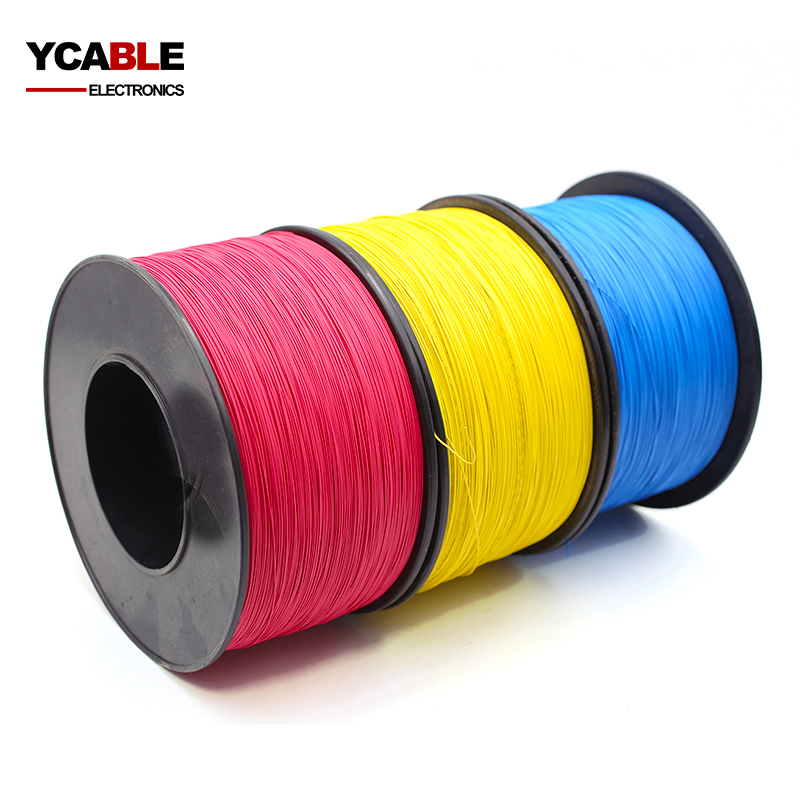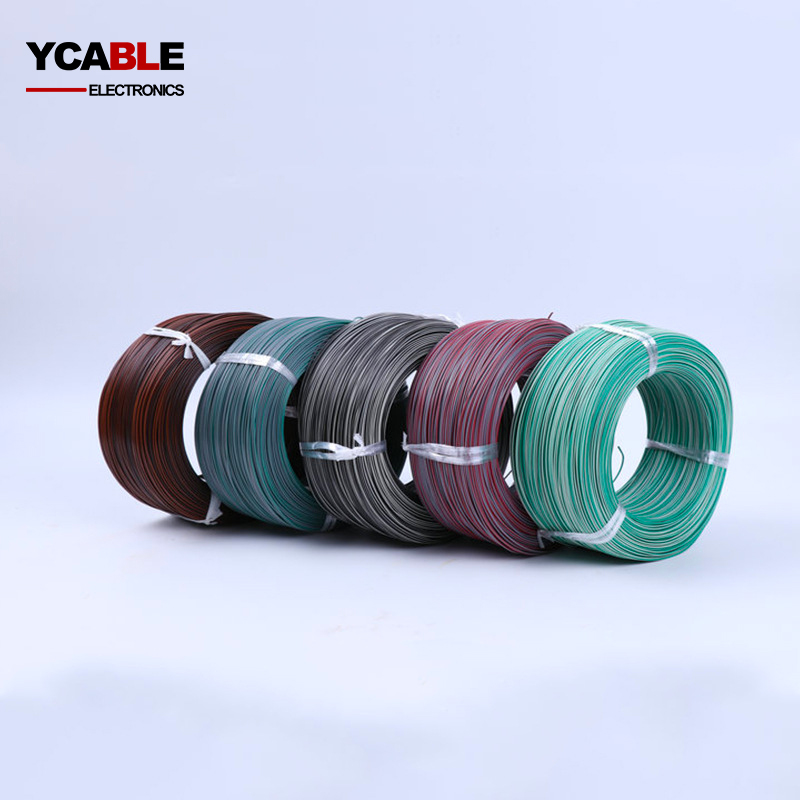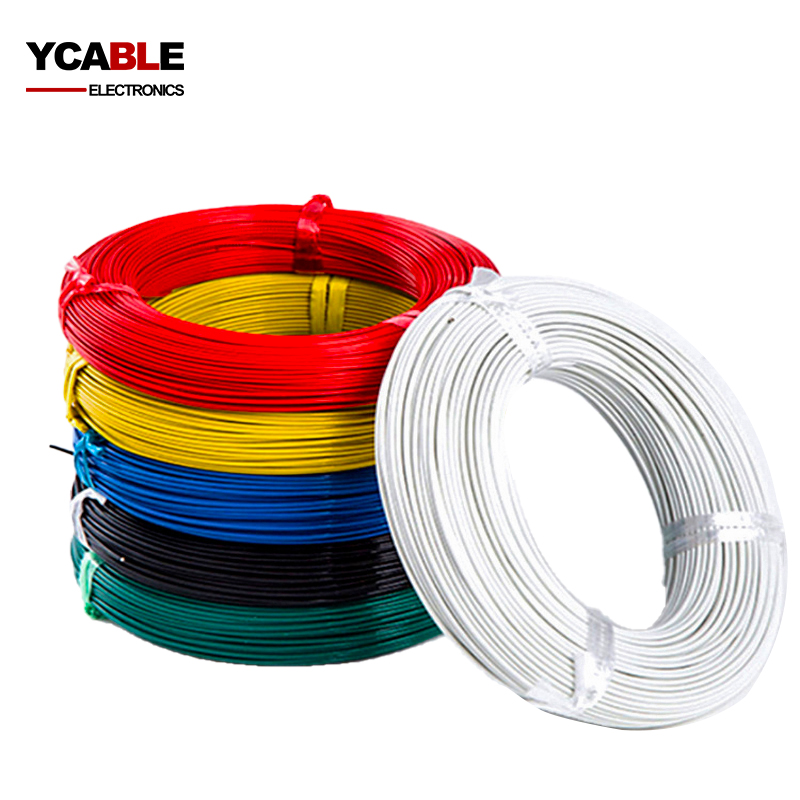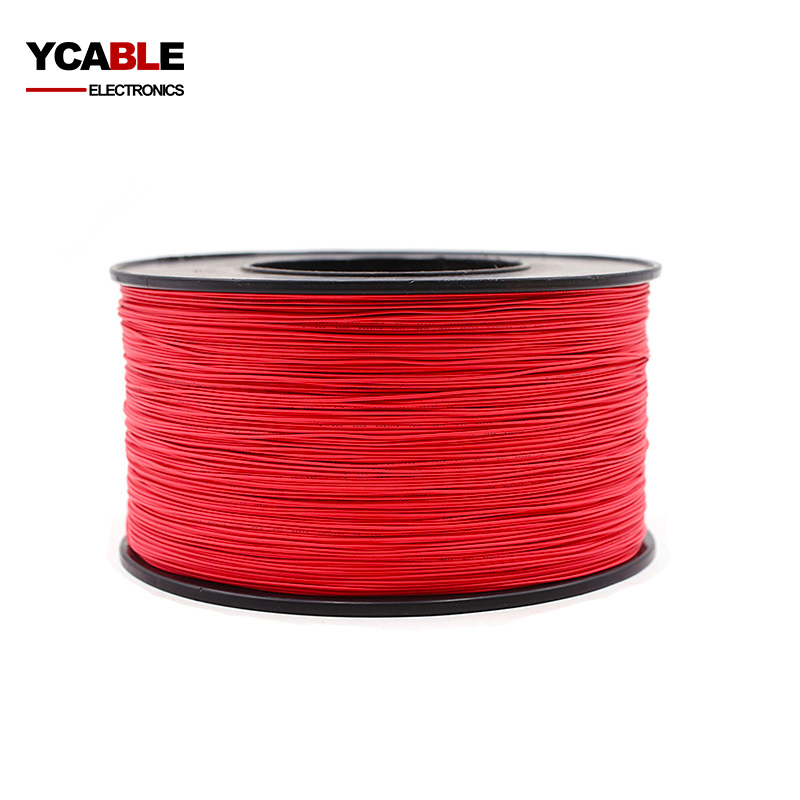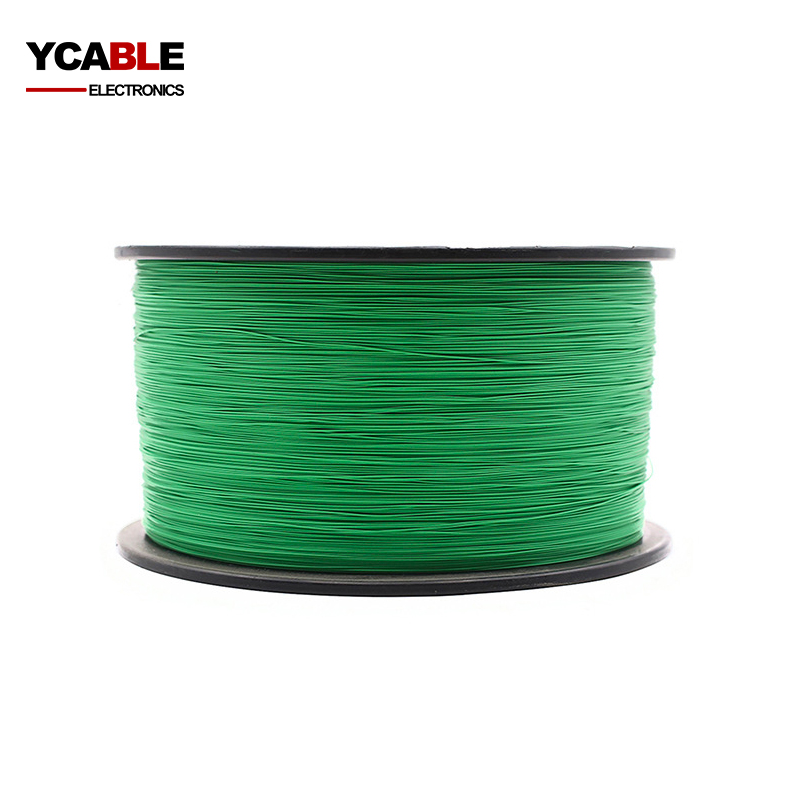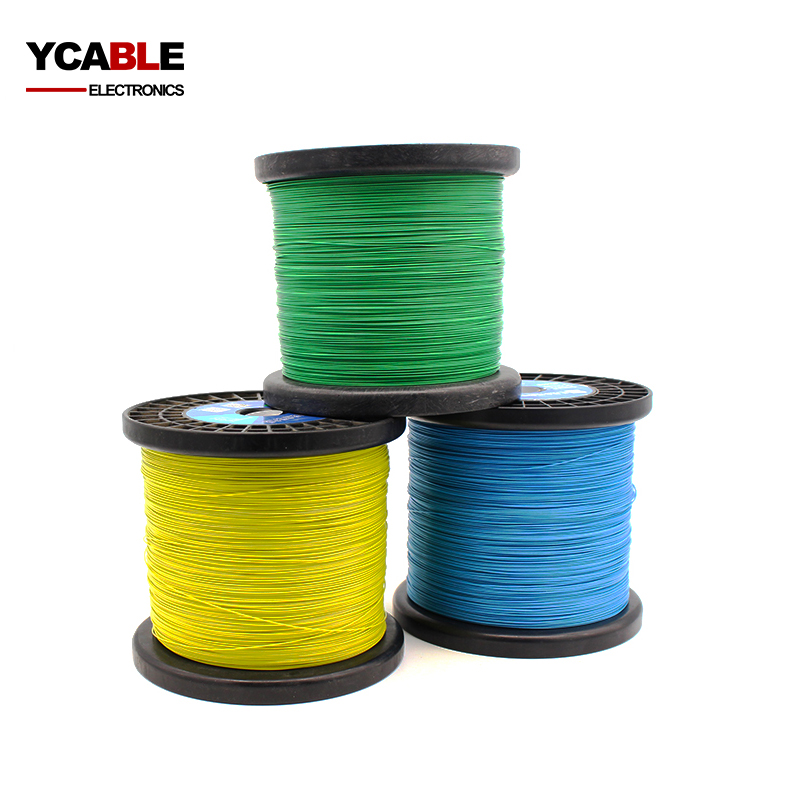What is a Teflon Cable
What is a Teflon cable?
Teflon cable refers to a cable whose insulation material or sheath material is Teflon (fluorine plastic). Currently, we can produce 6 types of fluoroplastic materials, namely FEP wire, PFA wire, ETFE wire, MFA wire, PVDF wire and PTFE wire, they are all made by modifying fluoroplastic materials in order to adapt to different use environments and requirements. Teflon cable is a type of high temperature resistant wire. The teflon cable temperature rating is minus 65 degrees Celsius to 260 degrees Celsius. Other common materials for high temperature wires include silicone wires. Teflon cable can not only be used in high temperature environments for a long time, but is more acid and alkali resistant, UV resistant, oil resistant, corrosion resistant, high pressure resistant, and flame retardant than silicone cable. It also has excellent chemical stability and excellent non stick properties. Features, longer service life, higher safety performance, can be widely used in aerospace, military machinery, automobiles, petrochemicals, electronic appliances, metallurgy, shipbuilding manufacturing, electromechanical and many other industries.
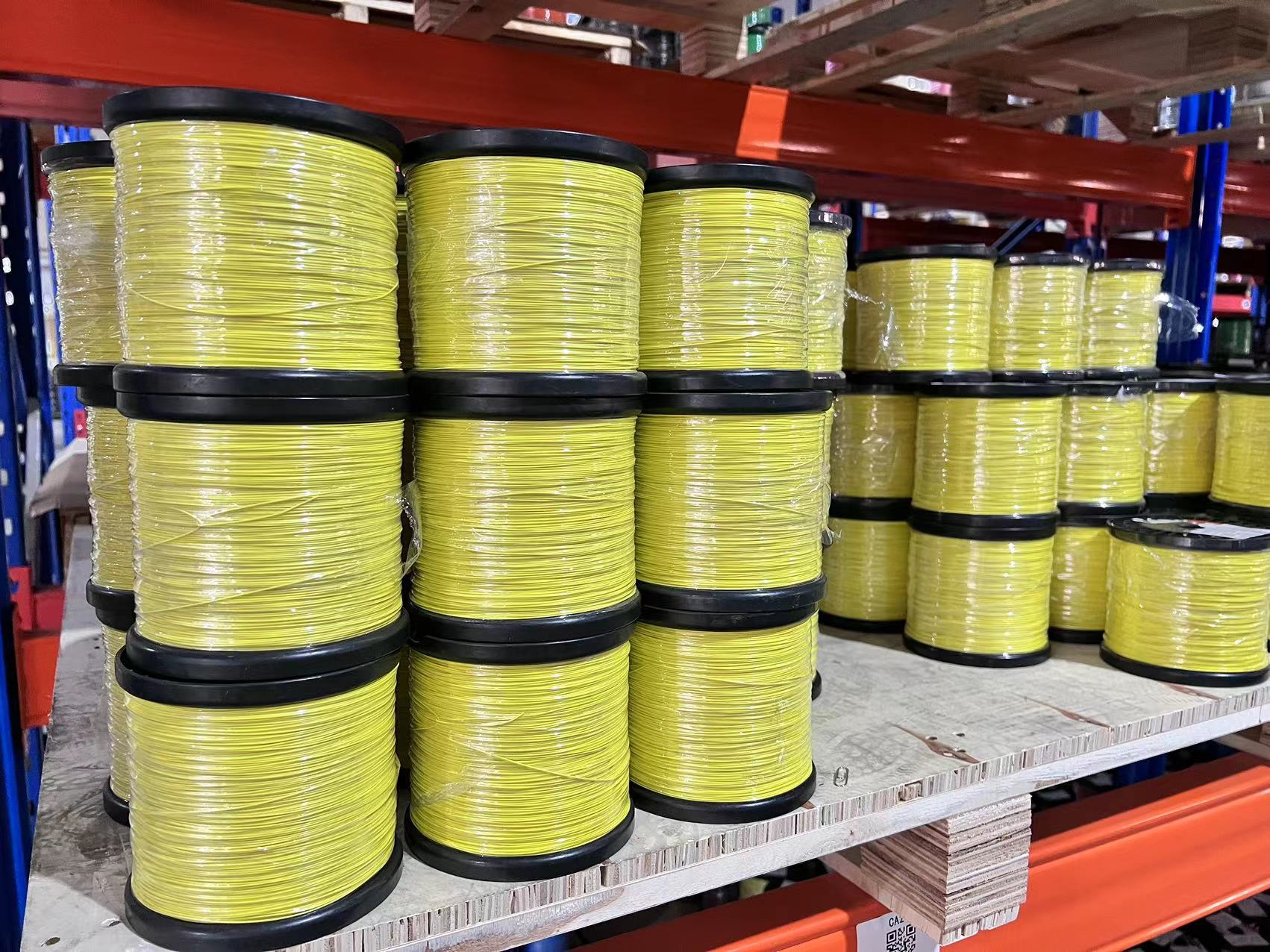
What are the Teflon cables available?
Common Teflon cables can be divided into:
Teflon Hook Up Wire, Teflon single core wire, used for internal connecting wires of electronic equipment, automobiles, etc., is composed of tin plated copper, silver plated copper or nickel plated copper as the conductor, and an insulating layer of fluoroplastic (PTFE, FEP, PFA, etc.) Single core wires, sizes ranging from 36AWG 10AWG, Teflon ultra fine electronic wires Compared with PVC hook up wires, the Teflon insulation layer is thinner and can withstand higher voltages, so it is widely used in LED packaging, electronic components devices, semiconductor devices. For Teflon single core wire, you can choose UL certified Teflon wire when purchasing, such as UL1332, UL1330, UL1911, UL10362, UL1180, UL1213, UL10393, etc.
Teflon Brake Cable, which is used for bicycle brake lines and gear shifting lines. This kind of line has higher requirements on physical properties, strong tensile strength, wear resistance, and low friction coefficient. Therefore, we choose treated stainless steel wire and make it The surface is coated with Teflon, which not only protects the stainless steel wire, but also makes it beautiful, smooth, low friction and easy to clean. In fact, it is not just bicycle Teflon Brake Cable, as long as the use requires tensile strength and low friction, it can be Teflon coated. steel wire.
Teflon Coaxial Cable, Teflon coaxial cable is divided into two types: RG 58 and thick cable RG 11. Compared with other materials (PVC, PE), the outer diameter of Teflon coaxial cable can be made very, very small. , but Teflon coaxial lines are rarely used compared to other coaxial lines. They are usually used for module connections inside communication transmitters, such as common smartphones, laptops, etc. This cable has low transmission loss, but also has shortcomings such as high hardness and difficulty in bending. In addition, due to the use of teflon material, the anti interference ability is very strong. The transmission frequency of this cable is extremely high, almost reaching 30Ghz.
Teflon Ethernet Cable. In high temperature environments, traditional network cables often cannot withstand the effects of extreme temperatures and are prone to performance degradation or damage. High temperature resistant Teflon network cable is a cable specially designed for high temperature environments. It has excellent high temperature resistance and reliable signal transmission capabilities. The most common ones are AFPF AFPSF FEP CAT5E, and FEP CAT6A network cables, which are used for network video signal transmission cables and dedicated monitoring video cables under high temperature conditions such as steel plants, boiler rooms, glass factories, power plants, chemical plants, vehicle manufacturing, etc. .
Teflon Ribbon Cable, the common models are AFB Teflon flat cable and Teflon ribbon cable. The color can be transparent or can be selected according to customer requirements. It is commonly used in flat cables for power stations, flat cables for control cabinets and flat cables for blast furnaces. The number of cores ranges from 2 to 6, and the square number is generally 0.06mm2 1mm2.
Teflon Shielded Cable is divided into Teflon single core shielded wire and Teflon multi core shielded wire. Common insulation materials are PTFE, FEP and PFA. The shielding material is generally aluminum foil and tinned copper or silver plated copper braiding. The braiding rate At more than 90%, it can withstand high temperatures and play a shielding role at the same time. The most common ones are 2 core twisted pair Teflon shielded wire, PT100 Teflon wire, AFPF Teflon shielded wire, AFFP Teflon shielded wire, AFP Teflon shielded wire Dragon shielded wire.
Teflon Control Cable, high temperature resistant multi core Teflon sheathed wire, the core wire is composed of Teflon connecting wire, the thickness of the core wire is determined according to different usage requirements, the sheath material can be silicone, rubber, or PVC, choose the sheath material according to the usage requirements.
Custom Teflon Cable. YCABLE ELECTRONICS has been producing and selling Teflon cable for several years. It has rich experience in Teflon production and manufacturing. It can combine a variety of other high temperature wire materials to customize a Teflon cable that suits you. We can also customize the wire diameter and color.
Are PTFE and Teflon the same?
Teflon material originally refers to PTFE material, also called polytetrafluoroethylene material. It is a high molecular polymer made by polymerizing tetrafluoroethylene as a monomer. It is white waxy, translucent, has excellent heat resistance and cold resistance, and can be used for a long time at 180 ~ 260ºC. This material is resistant to acids, alkalis, and various organic solvents, and is almost insoluble in all solvents. But now in the research and development and innovation of materials, Teflon material refers to fluoroplastic, not only PTFE, but also PFA material, which is a copolymer of a small amount of perfluoropropyl perfluorovinyl ether and polytetrafluoroethylene. ETFE material is made of Ethylene tetrafluoroethylene copolymer is called fluoroplastic 40 (referred to as ETFE or F40). ETFE is the strongest fluoroplastic. FEP material is made of polyperfluoroethylene propylene (FEP F46), which is a copolymer of tetrafluoroethylene (TFE) and hexafluoropropylene (HFP). FEP is an important TFE copolymer. Its performance is in addition to the highest use temperature. In addition to being 50°C lower than PTFE, other properties are equivalent to PTFE, and its operating temperature range is 190~205°C. PVDF material, polyvinylidene fluoride (PVDF or PVF2) is a homopolymer of vinylidene fluoride (1.1 vinylidene fluoride, VDF) or a copolymer of VDF and a small amount of other fluorine containing monomers used for modification. So when you are looking for Teflon cable, you need to know what kind of material you need. Come and consult YCABLE ELECTRONICS to find the Teflon cable that best suits your needs.
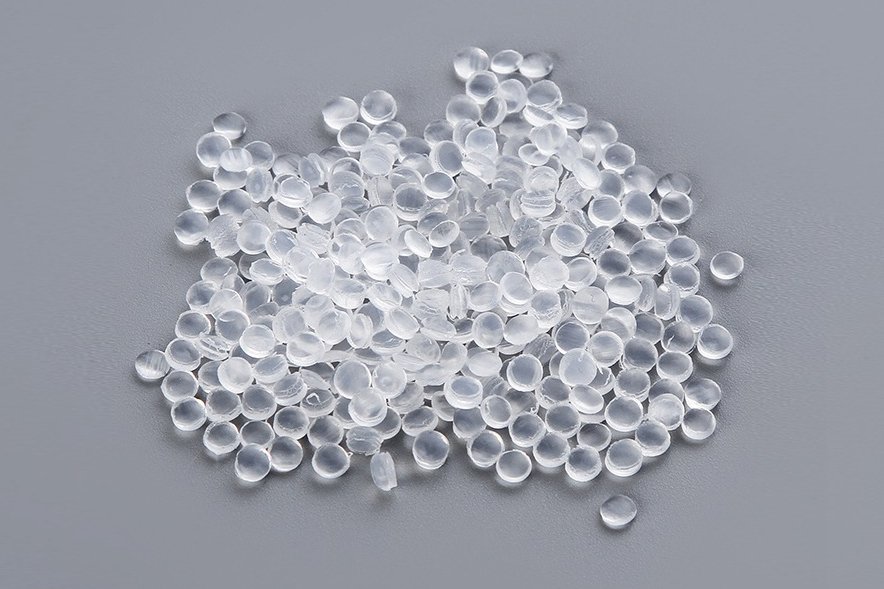
What is the difference between PVC and Teflon wire?
PVC is polyvinyl chloride, and Teflon is polytetrafluoroethylene. They are two different materials. Different materials will inevitably have different characteristics. We need to clearly know what their differences are so that we can choose a more appropriate wire.
1. The thickness of the insulation layer is different. Under the same withstand voltage, the thickness of the insulation layer of Teflon cable can be thinner. Therefore, when you have wire diameter requirements and need to pass through a hole of a specific size, you need to choose PVC material carefully.
2. They have different temperature resistance characteristics. The heat resistance of Teflon is better than that of PVC. The rated temperature of Teflon wire can be between 105 to 260 degrees, while the rated temperature of PVC wire is generally between 60 to 105 degrees. The same goes for low temperature resistance, and Teflon cable is more resistant to low temperatures.
3. Flame retardant capabilities are different. Teflon wires have better flame retardancy, while PVC wires themselves are not flame retardant. Some flame retardants need to be added to achieve the flame retardant effect. Teflon material itself is flame retardant. So when you have flame retardant requirements, you must specifically explain this situation when choosing PVC, but you don’t have to worry about using Teflon cable.
4. The appearance is different, and the color of the two is different. PVC material will look darker yellow, while Teflon will be brighter and more colorful.
5. Prices are different. The price of Teflon material is much higher than that of PVC material.
6. In addition, Teflon wire has stronger friction and corrosion resistance than PVC wire.
